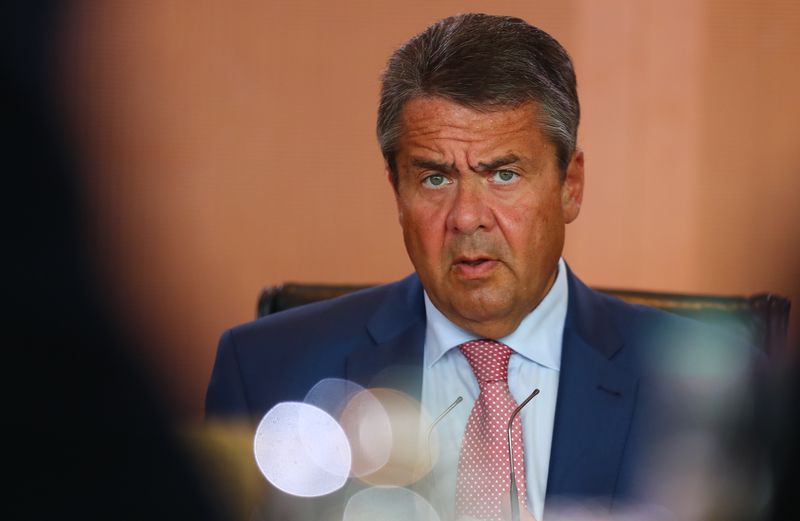By Andrea Shalal
BERLIN (Reuters) - Disarmament experts have urged Europe to be vocal in helping to halt what they regard as a new Cold War in which global powers have embarked on a new conventional and nuclear arms race, Germany's foreign minister said on Wednesday.
Sigmar Gabriel was briefing reporters after hosting what he called a "very troubling" meeting of a commission known as "Deep Cuts", a panel created in 2013 to discuss arms control issues. It includes experts from the United States, Russia and Germany.
"They told us we are now repeating the worst mistakes of the Cold War and are in the middle of a Cold War 2.0," Gabriel said.
"They called on us in Europe to raise our voices and express our interests vis-a-vis Moscow and Washington, but also within NATO," Gabriel said.
He added it was particularly important now to focus on halting the nuclear arms race, given developments on the Korean Peninsula, where fears of a military clash between North Korea and the United States flared up last week.
U.S. President Donald Trump said in February the United States had "fallen behind on nuclear weapon capacity," and is pushing ahead with plans to spend more than $1 trillion to modernise the existing nuclear arsenal.
Washington has also accused Russia of violating the 1987 Intermediate-Range Nuclear Forces (INF) treaty, which banned nuclear and conventional ground-launched ballistic and cruise missiles with a range of 500 to 5,500 km (300-3,400 miles).
Gabriel said it was critical for the United States and Russia to resume a dialogue on disarmament instead of slipping further into mutual recriminations and a new arms race spiral.
"Germany has an important voice within NATO and the European Union, and ... it must be used to call for disarmament and arms control," he said, noting that earlier disarmament efforts had come during tense points in ties between the two superpowers.
Gabriel, a Social Democrat (SPD), also blasted Chancellor Angela Merkel's conservatives for supporting Trump's call for Germany to essentially double its military budget, adding that spending existing funds more efficiently was more important.

The SPD is seeking to differentiate itself from Merkel's party, its senior coalition partner, ahead of Sept. 24 national elections, and has rejected a NATO target that calls for members to spend 2 percent of economic output on the military.